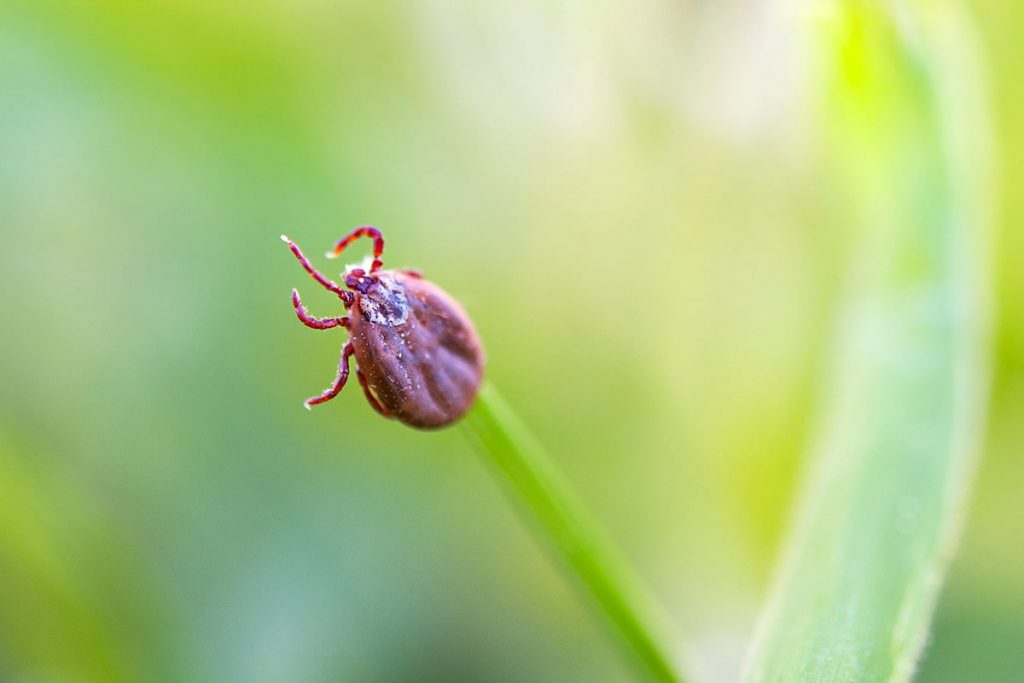Parasites, which include the ticks (Ixodida), are unpleasant contemporaries that can lead to serious diseases. But scientists also see a benefit in them, as explained below.
Contents
To the point
- Bloodsuckers transmit diseases and strengthen their hosts at the same time
- many animals depend on these parasites
- bring benefits to the ecosystem
Use as food
Ticks occur en masse when conditions are suitably optimal. If they are fully sucked, they can survive for many years on just one “ration” and continuously reproduce.

There are numerous species of animals in nature that feed on parasites. Worms and mosquitoes are at the top of the list, followed immediately by ticks. Thus, they are instrumental in regulating other living thing populations. If there were no tick parasites, this would significantly reduce the food supply. It would become more difficult for many animals to find food and, in the worst case, ultimately lead to the starvation of several species that depend on food in nature. For example, the ixodida is important for the following animals:
- Thrushes
- lizards
- Pheasants
- Hedgehogs
- crows
- Moles
- Partridges
- Pigeons
Note: The tick, even as a food object, can transmit pathogens to its natural predators as soon as they come into contact with the blood. In the worst case, they then become disease carriers themselves.
Acceleration of evolution
Researchers at universities in Bern, Switzerland, and Finland have come to the conclusion that blood-sucking parasites boost evolution. Parasites infest living organisms. As a result, the viable system evolves to better counteract “tick attacks” or to bypass the disturbances they trigger. This leads to changes and, accordingly, to accelerated evolution in some species. The researchers assume that this gives rise to offspring in some creatures that increasingly have less to fear from the health consequences of the parasites.
Immune system benefits
Yes, the tick can transmit life-threatening pathogens, but the bite also gets the immune system going. If a tick is discovered quickly and removed properly, the risk of serious illness is low for most creatures. The bite immediately puts animal as well as human body systems on “alert.” The body’s own defense system is stimulated and sent off for elimination. Without such stimulation by foreign/hazardous substances, the immune system increasingly falls into a kind of resting mode and, meanwhile, continuously degrades itself. This means that the body’s own defenses decrease and the body becomes increasingly incapable of defending itself by its own efforts. The susceptibility to diseases increases. A life without parasites such as these bloodsuckers would mean that many more living beings would not survive even minor illnesses.
Note: This does not mean that you should provoke tick bites. There are other, less risky ways to boost your immune system.
Egg-laying site
Some wasps prefer nymphs and tick larvae to lay eggs in their bodies. When the wasp offspring hatch, they feed on the tick innards. As a result, the tick offspring die.
These chalcid wasps in particular find egg-laying sites in the parasites:
Ixodiphagus hookeri, I. texanus, I. theilerae
Ticks against cancer
In Brazil, researchers have studied the saliva of the Ixodida. They have come to the conclusion that there are molecules in it that may have a benefit in the fight against cancer cells. According to the researchers, these molecules show reactions on the cells that make killing them likely. There have not yet been any detailed studies on this, but these results have attracted worldwide interest in the scientific community, so more far-reaching studies can be expected in the near future.
Protection of native species
More and more animal species are being introduced from abroad. Among them are also those that reproduce enormously fast and spread to such an extent that they displace native species. In other words, the habitat of native species is diminishing. Parasites such as the tick play a major role here, because they also find hosts in the introduced species and inflict health damage on many of them. Often, for some species, ticks are also able to disrupt the reproduction of such invasive species. In this way, at least where the bloodsuckers are present, massive spread is prevented. A researcher at the University of California was able to determine in a study that parasites are immensely important for “controlling” population size.
Frequently asked questions
Do ticks have any use in the home?
No. Residential areas are not part of their natural habitat. Since a bite should not be provoked, you, your family and/or your pet(s) provide potential food sources, ticks should not remain in living areas. They achieve their most benefit exclusively in the wild.
Tick in the garden – what to do?
The key here is to weigh the benefit-risk. The currently known usefulness of the bloodsuckers is significantly lower than the risk of transmitting pathogens through a bite. Therefore, if a tick is found in the garden, the rule is always: dispose of it!

